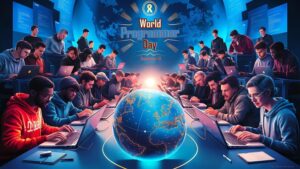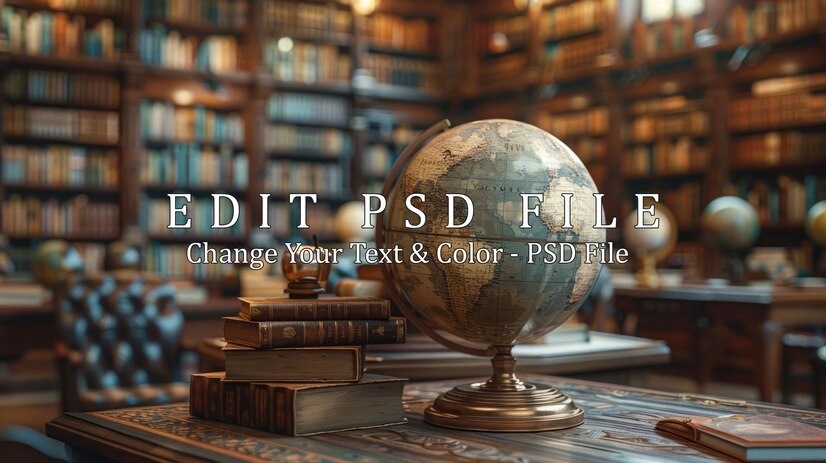Introduction to Wikipedia
Wikipedia is a free. Online encyclopedia that has become the go-to source for all information on virtually every topic imaginable. Created in 2001. It has grown into one of the most visited websites globally. Hosting millions of articles written in numerous languages. What makes Wiki pedia stand out is its unique for model of open collaboration. Meaning anyone with internet access can contribute by writing or editing articles. Let’s take a deep dive into this revolutionary platform and explore how it works. Its significance and the controversies that surround it.
History of Wikipedia
The Early Days
Wikipedia was launched on January 15, 2001, by Jimmy Wales and Larry Sanger. The concept emerged from a project called Nupedia. Which aimed to the create a peer-reviewed encyclopedia written by experts. However the slow pace of Nupedia led Wales and Sanger to explore a more open model. That would allow for rapid content generation by ordinary users. This idea gave birth to Wiki pedia. Which adopted the “wiki” format. Allowing any user to easily edit pages.
The idea was simple but groundbreaking. Let anyone, anywhere contribute to a freely accessible encyclopedia. Thus harnessing the collective knowledge of the public. Within its first year Wikipedia hosted more than 20,000 articles. Today it boasts more than 6 million articles in English alone. With over 55 million articles in total across various languages.
Growth and Popularity
As Wikipedia grew. It quickly became one of the most popular websites in the world. The open-editing model was seen as a revolutionary way to democratize knowledge. Wiki pedia became a first-stop resource for students. Researchers and casual readers alike. The platform now exists in over 300 languages and its articles cover an astonishing range of subjects. From ancient history to modern pop culture and scientific breakthroughs.
How Wikipedia Works

The Wiki Concept
A “wiki” is a collaborative website. Where users can create and edit pages collectively using a simplified markup language. Wikipedia uses MediaWiki an open-source software platform. That allows users to edit its content seamlessly. The platform’s success is rooted in the idea. That information should be freely accessible and maintained by the public not just experts or academics.
The Open-Editing Model
The most distinguishing feature of Wikipedia is that anyone can edit articles. This openness allows for a constant stream of updates and improvements. Users known as “Wiki pedians” volunteer their time to create expand and correct information. Wiki pedia’s guiding principles known as the “five pillars.” Promote neutrality free use of content and respect among editors.
Article Creation and Editing
Creating a Wikipedia article is straightforward. Users can create new pages. Edit existing articles and add citations. However Wiki pedia’s guidelines emphasize. The importance of verifiability and reliability. Articles should be based on secondary sources and be written from a neutral point of view. While this model promotes inclusivity. It also introduces the risk of misinformation. Which Wikipedia works hard to mitigate through. Its robust system of oversight and moderation.
Moderation and Reliability
Given its open-editing model. Some may question Wikipedia’s reliability. To ensure accuracy Wiki pedia employs a group of dedicated editors and administrators. Who monitor changes and correct errors. High-profile or controversial pages often have restricted editing privileges. Meaning only experienced or approved editors can make changes.
Wikipedia also relies heavily on citations from credible sources. Articles must include references from reputable publications. Research papers or other reliable secondary sources. This system helps maintain the quality and trustworthiness of the content.
The Importance of Wikipedia in the Digital Age

A Gateway to Knowledge
Wikipedia serves as a primary gateway to knowledge for millions of people around the world. In an age where information is abundant. But not always reliable Wikipedia offers a convenient starting point for research. Whether you’re looking for a basic overview of a topic or an in-depth explanation. Wikipedia provides a jumping-off point. That often links to more authoritative sources.
Accessibility
What makes Wikipedia so powerful is its accessibility. Unlike traditional encyclopedias. Which are costly and require physical copies Wiki pedia is completely free and accessible from any internet-connected device. This makes it a crucial tool especially in countries or regions. Where access to books academic resources or expert knowledge is limited.
Language and Cultural Representation
Wikipedia exists in over 300 languages. Making it one of the most multilingual platforms in the world. This wide range allows users from diverse backgrounds to read and contribute articles in their native languages. Promoting cultural representation and the exchange of knowledge across borders. The platform’s multilingualism is crucial for preserving and sharing knowledge. That may otherwise be confined to specific regions or communities.
Criticism and Controversies

Reliability and Misinformation
Despite its benefits. Wikipedia is not without its critics. One of the most common criticisms is the reliability of its information. Since anyone can edit pages. The risk of misinformation or bias is ever-present. Although Wiki pedia’s system of citations and moderation helps combat this issue. Some articles can still fall victim to vandalism or contain errors before they are corrected by editors.
Systemic Bias
Wikipedia has also been criticized for reflecting systemic bias. Particularly regarding its lack of diversity among contributors. Studies have shown that the majority of Wiki pedia’s editors are male and from Western countries. This can result in an imbalance in coverage. With certain topics (such as Western history and technology) being extensively documented. While others particularly topics related to non-Western cultures languages and marginalized communities May be underrepresented.
Notability Guidelines
Another area of contention is Wikipedia’s “notability” policy. Which determines whether a topic merits its own article. Critics argue. That the guidelines are too subjective and may exclude important figures or subjects. That lack mainstream media coverage. Eespecially from underrepresented groups.
The Future of Wikipedia
Growth and Expansion
As Wikipedia moves into its third decade. It continues to grow and evolve. The platform is actively working to address some of the criticisms. It has faced particularly around bias and representation. Wiki pedia’s parent organization. The Wikimedia Foundation is focused on expanding access to knowledge globally. With initiatives aimed at improving coverage of underrepresented. Topics and increasing the diversity of its contributors.
Technological Advancements
Wikipedia is also exploring how to integrate artificial intelligence (AI) and machine learning to help with content moderation. Error detection and translation services. AI can assist human editors in identifying vandalism. Improving the quality of articles and making the platform more user-friendly.
Community Involvement
The future of Wikipedia will continue to rely on its community of editors and volunteers. As more people contribute to the platform. Wiki pedia’s breadth and depth of knowledge will only continue to expand. The platform is actively seeking to encourage contributions from a more diverse group of editors to make. It more inclusive and representative of the global population.
Conclusion
Wikipedia has revolutionized the way we access information. By offering a free open-source and collaborative encyclopedia. It has made knowledge accessible to millions around the world. While it faces challenges like reliability systemic bias and ensuring high-quality content. It remains a pivotal tool for learning and research in the digital age.
The collaborative spirit of Wikipedia — where anyone can contribute and edit — makes it a constantly evolving resource. That reflects the collective knowledge of its users. As it continues to grow and address its limitations Wiki pedia’s impact on the global exchange of knowledge is set to endure for years to come.
FAQs
1. Is Wikipedia a reliable source of information?
While Wikipedia is generally reliable, it’s important to cross-reference information with primary and reputable secondary sources, especially for academic work or research. Wiki pedia itself emphasizes that it should be used as a starting point rather than a sole source.
2. Can anyone edit Wikipedia?
Yes, Wikipedia’s open-editing model allows anyone with internet access to edit its articles. However, edits are monitored, and there are guidelines to ensure the accuracy and neutrality of the content.
3. How does Wikipedia make money if it’s free?
Wikipedia is a non-profit organization supported primarily through donations from its users. The Wikimedia Foundation, which operates Wiki pedia, runs fundraising campaigns to cover its operational costs.
4. Why does Wikipedia ask for donations?
Because it’s a non-profit, Wikipedia relies on donations to keep the platform running without advertisements. These funds help maintain servers, improve the website, and ensure the availability of free knowledge worldwide.
5. What are some common criticisms of Wikipedia?
Criticisms include concerns about the reliability of information, systemic bias due to a lack of diversity among editors, and issues with the notability guidelines, which can exclude certain topics from being covered adequately.


Average Rating